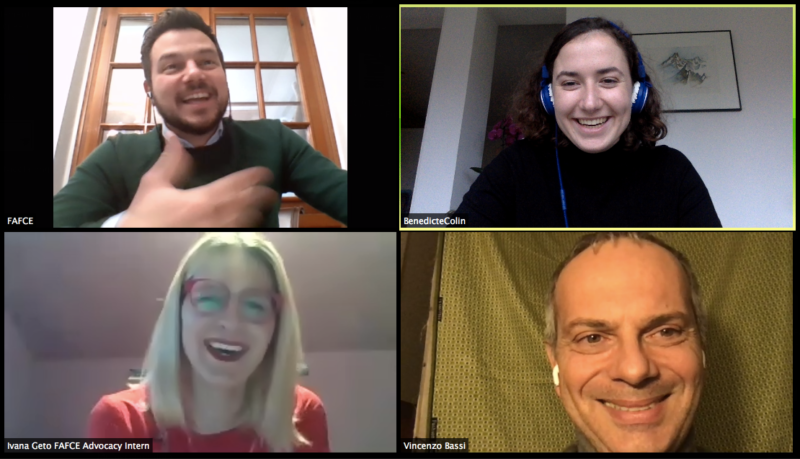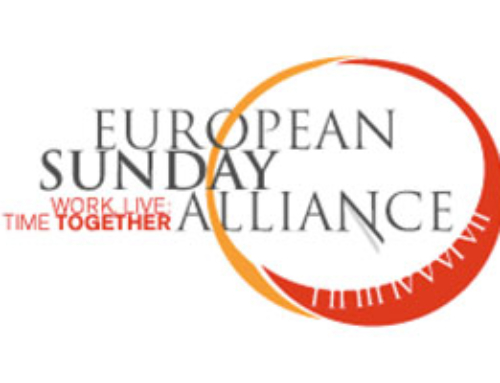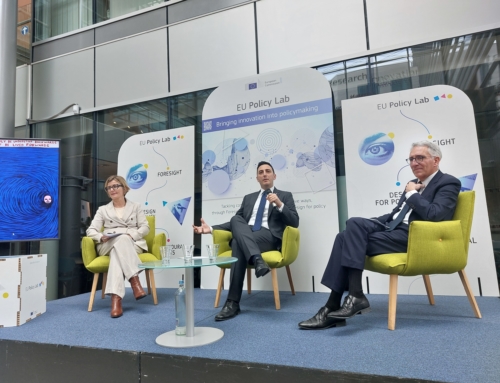Brussels, 21 December 2020
Dear Friends,
The year 2020 has been an unprecedented year. A year of pandemic, full of struggles, but also a year of testimony. A testimony of the weight carried by families every year, showing how crucial their role is for communities, and the importance of the service they provide freely above any public policy! The pandemic has reminded us that family is not simply another of many functions, but happens to be the very bedrock of our society. The family has been at the forefront of all daily challenges. Family associations played in this sense a key role in bringing families together in networks of solidarity.
We have brought the voice of the family to the EU institutions and promoted the intergenerational solidarity, be it through the support to the elderly, to parents’ family work-life balance, to the protection of children from education deficit and online risks, or through the fight against human rights violations such as surrogacy and eugenic abortion. We will tirelessly continue the work we are doing, for which we will need your continuous support.
As the European Council and the European Parliament agreed a week ago on the EU long-term budget and on the so-called “Next Generation EU”, an EU fund specifically dedicated to the post-pandemic recovery, the upcoming year could present an excellent opportunity to invest in a real future for Europe, which is impossible without a demographic renewal. As recalled by Cardinal Parolin, Secretary of State of the Holy See, in his address to the COMECE Plenary Assembly on October 28, 2020: “Among innovative and interesting proposals that have been made, I wish to mention the Next Generation EU recovery fund which, even if it is still to be sorted out in detail and in its practical implications, seems to be a move in the right direction for making solidarity between member states a reality. Such solidarity needs to touch the basic fabric of society, the family, by means of suitable support policies. It is a question of enhancing the most important resource civil society has and, above all, putting an end to the now excessively long demographic winter, which is eating away at the base of Europe’s future.”
As we stressed in our last Board Resolution, children are the future of Europe and family will be a key component of the post-pandemic recovery and can help shape a sustainable future for our communities.
The Vice–President of the European Commission for Democracy and Demography, Dubravka Šuica, recently declared during the first European Congress of Family Friendly Municipalities that “these discussions will further help in making our municipalities, cities and regional spaces more resilient and welcoming for children and families in this uncertain COVID-19 times. This is especially so at the time when we are being forced to rethink many of our approaches in light of our new circumstances. Let us make sure together that this reflection keeps the well-being of our families and children high on the agenda”.
The European agenda has been busy on many matters related to the family and our Member associations remain committed during these months. Indeed, family associations are a real remedy to the loneliness of the family, which in this period of pandemic unveils itself as the true and most serious illness.
The restrictions related to the pandemic threatened on an unprecedented scale the freedom of religion, especially in Countries such as Belgium, the United Kingdom and France: here, the Catholic Family Associations, with key allies, filled a successful compliant to reestablish the freedom of worship.
Law proposals and Court decisions towards the legalisation of euthanasia are pushed forward in Austria, Ireland, Portugal and Spain, although its disastrous consequences are already visible in Countries like Belgium and the Netherlands.
Several Countries are expressing their opposition to surrogacy, with the Lithuanian Parliament adopting a Resolution on the condemnation of all forms of surrogacy last June and Denmark declaring in a ruling of the high Court surrogacy as a situation of merchandising of children.
Another ruling created thorny debates in Poland, with the Constitutional Court declaring in November eugenic abortions as unconstitutional. On the same subject, the Slovak Parliament recently failed to adopt an amendment to support the prevention of abortion through more support for pregnant women and families.
The recognition of the family has also been enhanced in Hungary, whose Parliament, only last week, made clear in its Constitution that “Every child shall have the right to the protection and care necessary for his or her proper physical, intellectual, and moral development. Hungary protects the children’s right to an identity corresponding to his or her sex at birth and ensures an upbringing for them that reflects the values based on Hungary’s constitutional identity and Christian culture.” The approved constitutional amendment also highlights that “Family ties shall be based on marriage and the relationship between parents and children. The mother shall be a woman, the father shall be a man.”
In Romania an innovative proposal including a definition of larges families in its legislation is being discussed. Looking at southern Europe, Malta and Italy are currently discussing laws against homophobia, which will gravely threaten freedom of speech, education and conscience. Spain on its side is also facing debates regarding education, with a fundamental change in its education law, without any involvement of the civil society and threatening the basic principles of social cohesion and of the best interest of the child. Finally, Italy is preparing vouchers to support families in the post-pandemic recovery. It is just a small example of how governments can invest in the family in the post-pandemic national recovery plans. We really hope that all governments will make good use of the recovery fund.
On our website and social media (Twitter and Facebook), you will be able to stay updated on our daily activities and on our online dialogues, which will continue in 2021. But, as you can imagine, all this is only possible thanks to our Brussels-based staff: please, think about giving a donation to our Organisation. Our Member associations will suffer financially this year. The impact that we can have at European level depends on the commitment of each one of us.
In this start of the “Year of Saint Joseph”, celebrating the 150th anniversary of Blessed Pope Pius IX’s declaration of St Joseph as Patron of the Universal Church, Pope Francis recalled the importance of the “ordinary” persons who, as Saint Joseph, “go unnoticed, a daily, discreet and hidden presence,” who nonetheless played “an incomparable role in the history of salvation.” When welcoming the coming of our Saviour in the humble arms of the Virgin Mary and Saint Joseph, let’s recall the unnoticed essential role of all parents and families for our world and future.
Our warmest wishes for a wonderful Christmas from myself and our Team,
Vincenzo Bassi,
FAFCE President









